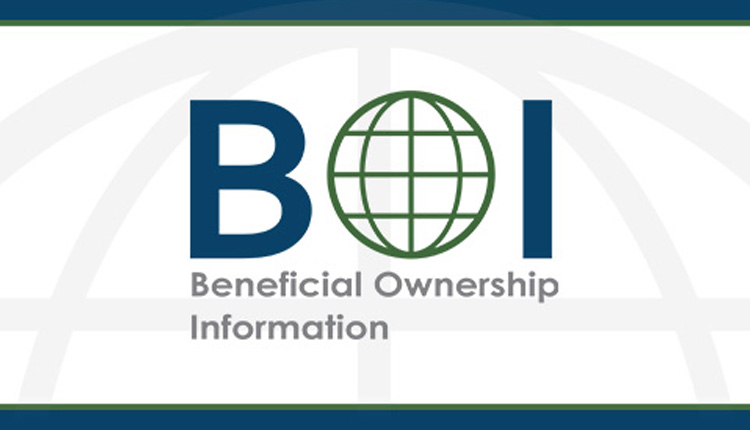Understanding Beneficial Ownership Reporting for Small Businesses
In an effort to enhance transparency and combat financial crimes, the Financial Crimes Enforcement Network (FinCEN) has introduced new reporting requirements for beneficial ownership information (BOI). Small businesses operating in the United States need to be aware of these regulations and take the necessary steps to comply. This blog will provide a comprehensive overview of the Beneficial Ownership Information reporting requirements, the Corporate Transparency Act, and how small businesses can navigate these obligations.
Beneficial Ownership Information (BOI) Reporting Requirements:
What is BOI?
BOI refers to information about individuals who own or control at least 25% of a reporting company. This includes ownership interests such as equity, stock, voting rights, and more. Exceptions include minors, nominees, intermediaries, custodians, agents, employees, inheritors, and creditors.
Reporting Obligations:
Who has to report?
– Domestic Reporting Companies: a corporation, LLC, or any other entity created by the filing of a document with a secretary of state or similar office.
– Foreign Reporting Companies: a corporation, LLC, or other entity formed under the law of a foreign country that is registered to do business in the United States by filing a document with a secretary of state or similar office.
– Non-Reporting Companies: Includes entities that are not created by filing with a secretary of state, e.g., sole proprietorship and certain trusts.
– Exempt Companies: include banks, credit unions, tax-exempt entities, public utilities, and certain large companies. The Small Entity Compliance Guide includes a full list of exemptions
The reporting obligation of your company hinges on its status as a Domestic/Foreign Reporting entity and its creation or registration date. For entities established or registered on or after January 1, 2024, it is mandatory to report company applicants. Conversely, if the Domestic/Foreign Reporting company was created or registered before January 1, 2024, there is no requirement to report company applications. Company applicants, in this context, refer to the individuals directly responsible for filing the documents that brought the company into existence or were instrumental in directing and controlling the filing of the creation or first registration document. More information on this subject can be found here Overview of Beneficial Ownership Information Reporting with Under Secretary Brian Nelson.
Information Company Required to Report:
Reporting companies must provide detailed information about beneficial owners and company applicants, including names, dates of birth, addresses, and identifying numbers from specific documents. A unique FinCEN Identifier may be issued for reporting instead of certain required information. The reporting requirement was effective from January 1, 2024. Reports for businesses registered or created before January 1, 2024, are due by January 1, 2025. New companies created and registered in 2024 must report within 90 days of the effective creation or registration notice.
Reporting Changes and Inaccuracies:
Corrected reports are required within 30 calendar days if previously reported information was inaccurate. Failure to report BOI within the specified timeframe may lead to civil or criminal penalties.
Understanding FinCEN and Corporate Transparency Act:
FinCEN Overview:
The Financial Crimes Enforcement Network (FinCEN) is crucial in protecting the U.S. financial system by supporting law enforcement and implementing anti-money laundering implications.
For more information, visit FinCEN’s official website and learn about its mission here.
Corporate Transparency Act:
Watch this video to understand the Corporate Transparency Act, aimed at promoting transparency in corporate structures and preventing illicit activities.
Frequently Asked Questions (FAQs):
BOI FAQs:
Visit the BOI FAQs section on the FinCEN website for answers to common questions. Learn about the reporting requirement, whether your company needs to report, and how to submit BOI.
Reporting Process:
Detailed information on how to report BOI can be found on the BOI FAQs page. Follow the guidelines to ensure accurate and timely submissions.
Additional Resources and Support:
Educational Videos:
Explore informative videos on beneficial ownership reporting and related topics on FinCEN’s YouTube channel.
Webinars:
Watch the webinar presented by FinCEN on beneficial ownership information.
Contact FinCEN:
For specific inquiries or assistance, visit the contact section on the FinCEN website.
Online Filing:
Report your BOI through the official BOI e-filing portal.
Seek Guidance:
If you need assistance finding information or understanding legal implications, reach out to the Iowa Small Business Development Center. While they may not provide direct advice, they can help guide you in the right direction.
Professional Assistance:
For tax-related concerns, find a CPA through the Iowa Society of CPAs. Similarly, if you require legal help, locate a lawyer via the Iowa Bar Association.
Understanding and complying with beneficial ownership reporting requirements is crucial for small businesses. By staying informed about FinCEN, the Corporate Transparency Act, and utilizing the provided resources, small business owners can navigate these obligations effectively, promoting transparency and safeguarding against potential legal consequences.

